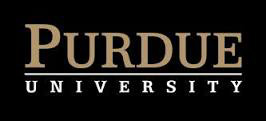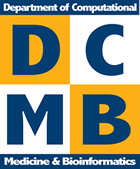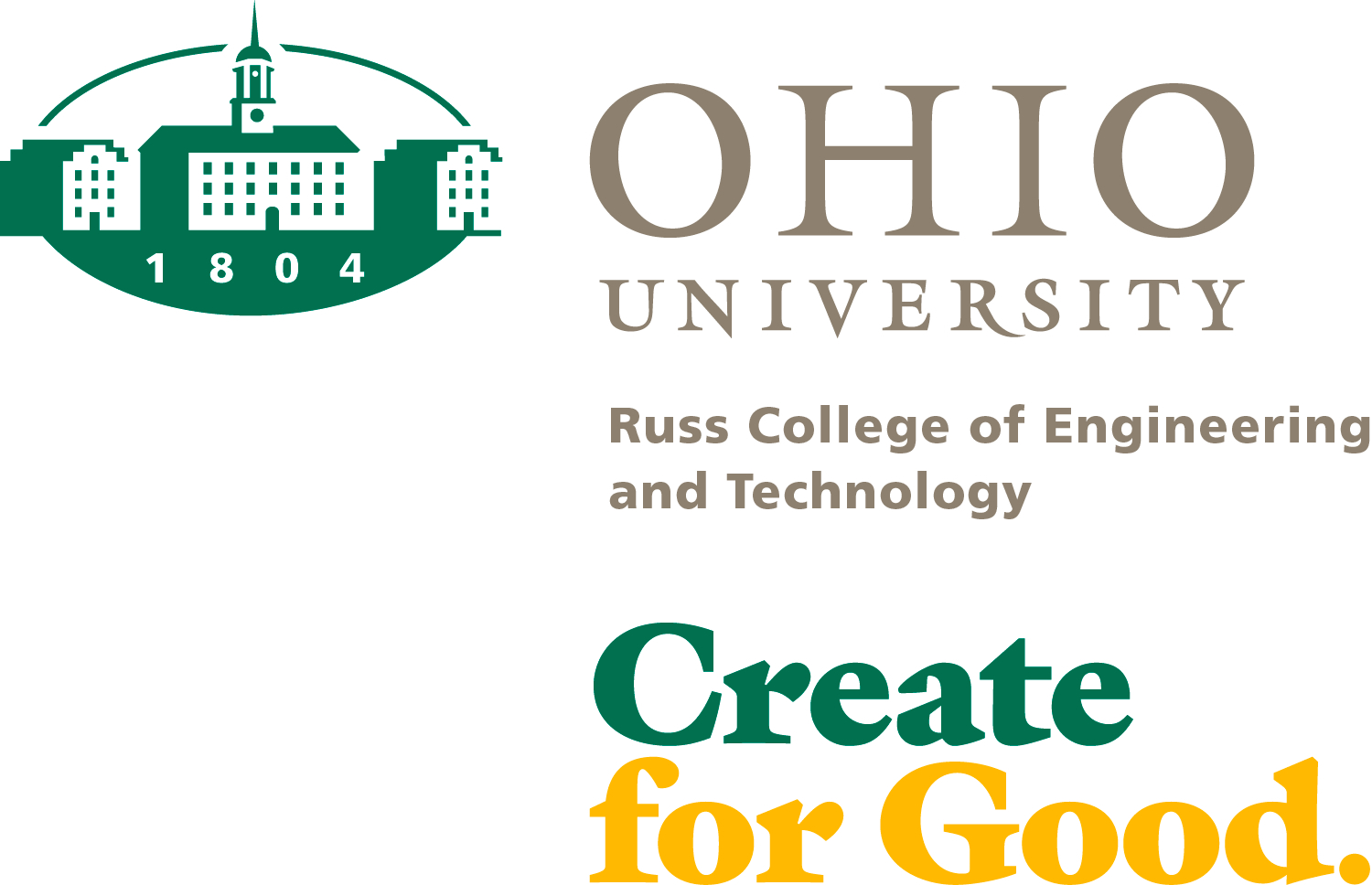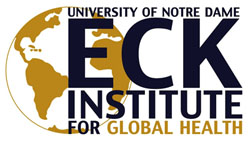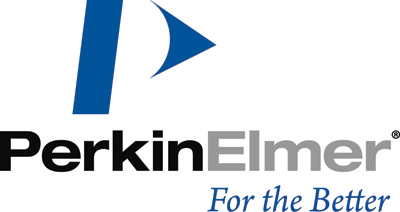In order to travel to Canada, there are certain entry requirements you must meet depending on the country you live in.
The Government of Canada issues and updates a Visa Exemption List. We recommend checking the official website regularly when planning your trip, so you can request a visa if needed.
You can also visit the IATA TravelCentre website, input information about your trip, and receive details about what immigration and health requirements must be met.
Invitation Letters
If you require an invitation letter to support your visa application, please complete our Visa Letter Request Form. This must be completed after you register for the conference, and we recommend filling it out at least 4 weeks before the conference in order to allow time to receive your visa application decision. Visa letters will still be processed after this date but may not be approved in time.
Please allow up to 3 business days for your letter request to be fulfilled and sent to your email address. ISCB Staff do not process any letter requests on weekends or days that are deemed federal holidays in the United States of America.
Funding Information
At this time, we are unable to provide travel fellowships through the conference. If funding becomes available, details and a link to submit will become available here.
Other opportunities for travel funding to attend CBHC 2026 are available. Eligible applicants may wish to consider applying for:
- CBH Training Award funding (Due December 1, 2025)
- Canadian Institutes of Health Research (CIHR) Travel Awards (Due November 18, 2025)
La version français suit
CBH recognizes Canadian excellence through its Awards program.
Links within this page: Key Dates | General Eligibility Criteria for all Awards | How to Apply | Prize | The CBH Research and Innovation Award | The Francis Ouellette Community Award | CBH Impact Trainee Award | Date Clés | Critères généraux d'admissibilité pour tous les prix | Comment postuler | Prix | Prix de recherche et d'innovation du HCB | Prix Communautaire Francis Ouellette | Prix HCB de l'Impact Stagiaire
Key Dates
- October 9, 2025 - Award submission opens. Self-nominations accepted
- December 8, 2025 - Award nomination closes
- May 28, 2026 - Announcement and presentation of awards at conference
General Eligibility Criteria for all Awards
- Nominee must be working in the field of bioinformatics, computational biology, or biological/medical data science in Canada
- Work at an institution based in Canada
- Not received the given award in the past 5 years
- Self-nominations accepted
How to Apply
Select the award category best suited to your submission. Indicate within the submission form if you are applying as a trainee or an early or mid- career professional.
Prize
Awardees will receive one year membership with the International Society for Computational Biology courtesy of CBH, and a choice between $500 or three extra years of ISCB membership (4 years total). ISCB membership benefits include discounts on ISMB conference registration and publications in Bioinformatics and Bioinformatics Advances.
Awards
The CBH Research and Innovation Award
The CBH Research and Innovation Award recognizes early and mid- career professionals in any sector who are shaping Canada’s bioinformatics, computational biology, and data science (BCBDS) ecosystem. This award highlights active innovations that are making a difference and show strong promise for future impact. It celebrates projects, products, or initiatives that value diverse perspectives and build unexpected connections to deliver transformative solutions.
Eligibility
Open only to early or mid- career professionals; self-nominations accepted. We follow CIHR definitions, so an early career professional is within five years of their first independent research-related position, and a mid-career professional is within 6-15 years of their first independent research-related position.
The innovation must:
- Take place in Canada and provide benefit to people in Canada
- Demonstrate current impact with clear potential for future success
Award Evaluation criteria
Submissions will be evaluated based on:
- Novelty and originality: The candidate’s work introduces fresh thinking, creativity, or innovative approaches that advance BCBDS in Canada.
- Incorporation of diverse perspectives: The candidate’s work incorporates ideas, expertise, or voices from different backgrounds, sectors, or communities to strengthen the innovation.
- Inspiration and creativity: The candidate's work inspires others, encourages creativity, and sparks new directions within the research ecosystem.
- Impact and relevance: The candidate's work demonstrates tangible benefits for Canada’s bioinformatics, computational biology, and life data sciences community, with evidence of current impact and strong potential for future growth.
Submission Requirements
- Curriculum vitae (maximum 5 pages) outlining education, career stage, and relevant achievements to the award.
- Project or Innovation Summary (maximum 500 words) describing why the nominee would be an excellent candidate for this award, as well as the innovation, its objectives, novelty, inspiration potential, current impact, and future potential.
- Statement on Diverse Perspectives (maximum 250 words) explaining how the innovation incorporates different backgrounds, sectors, or communities.
The Francis Ouellette Community Award
The Francis Ouellette Community Award is established in recognition of Francis Ouellette, a major contributor to the development of the Canadian bioinformatics community for 25 years. The Francis Ouellette Community Award is given to an early and mid- career professional in any sector who is making outstanding contributions to building community among Canada’s bioinformatics, computational biology and data science (BCBDS) professionals, or is making outstanding community contributions, including creating or curating community resources (e.g. data, software tools, policies) that empower BCBDS research.
Eligibility
Open only to early or mid- career professionals; self-nominations accepted. We follow CIHR definitions, so an early career professional is within five years of their first independent research-related position, and a mid-career professional is within 6-15 years of their first independent research-related position.
Award Evaluation Criteria
Submissions will be evaluated based on:
- Leadership in community initiatives: The candidate demonstrates initiative in organizing or contributing to BCBDS community-building efforts (e.g., student groups, workshops, open-source projects, public databases, hackathon, seminars) in Canada
- Promotion of inclusion, diversity, equity, and accessibility: The candidate champions equity, diversity, inclusion and accessibility in research spaces and community settings, creating more accessible and welcoming environments.
- Contribution to open science, responsible data management and knowledge sharing: The candidate promotes open and FAIR science by sharing software tools, resources, or learnings that support collaboration, transparency, and broader access to bioinformatics knowledge.
- Potential for sustained impact: The candidate shows promise for continued leadership and long-term contributions to BCBDS community development in Canada.
Submission Requirements
- Curriculum vitae (maximum 5 pages) outlining education, career stage, and relevant achievements to the award.
- Project or Innovation Summary (maximum 500 words) describing why the nominee would be an excellent candidate for this award, as well as a description of their leadership in community initiatives, promotion of inclusion, diversity, equity, and accessibility, contribution to open science, responsible data management and knowledge sharing, and sustained impact.
- Statement on Diverse Perspectives (maximum 250 words) explaining how the community activity incorporates different backgrounds, sectors, or communities.
CBH Impact Trainee Award
The CBH Impact Trainee Award is given to a leading trainee in any sector who is making outstanding contributions in areas of The CBH Research and Innovation Award or The Francis Ouellette Community Award.
Eligibility
- Open only to trainees; self-nominations accepted
- The nominee must be in a bioinformatics, computational biology, or biological/medical data science training program in Canada.
Award Evaluation Criteria
Submissions will be evaluated based on the criteria set out in The CBH Research and Innovation Award or The Francis Ouellette Community Award.
Submission Requirements
- Curriculum vitae (maximum 5 pages) outlining education, career stage, and relevant achievements to the award.
- Submit to the desired award: “CBH Research and Innovation” or “Francis Ouellette Community” and indicate trainee status
- Nomination Summary (maximum 500 words) describing why the nominee would be an excellent candidate for this award, following the criteria of The CBH Research and Innovation Award or The Francis Ouellette Community Award.
- Statement on Diverse Perspectives (maximum 250 words) explaining how the nominee’s work incorporates different backgrounds, sectors, or communities.
Le Hub Canadien de Bio-informatique (HCB) reconnaît l'excellence canadienne grâce à son programme de Prix.
Dates clés
- 9 octobre 2025 - Ouverture des candidatures. Auto-candidatures acceptées
- 8 décembre 2025 - Clôture des candidatures
- 28 mai 2026 - Annonce et remise des prix lors de la conférence
Critères généraux d'admissibilité pour tous les prix
- Le candidat doit travailler dans le domaine de la bio-informatique, de la biologie computationnelle ou de la science des données biologiques/médicales au Canada.
- Travailler dans un établissement basé au Canada.
- Ne pas avoir reçu le prix concerné au cours des cinq dernières années.
- Auto-nominations acceptées.
Comment postuler
Sélectionnez la catégorie de prix qui correspond le mieux à votre candidature. Indiquez dans le formulaire de candidature si vous postulez en tant que stagiaire ou en tant que professionnel en début ou en milieu de carrière.
Prix
Les lauréats bénéficieront d'une adhésion d'un an à la International Society for Computational Biology (ISCB) offerte par le HCB, et pourront choisir entre 500 $ ou trois années d'adhésion à l'ISCB supplémentaires (soit quatre années au total). L'adhésion à l'ISCB offre des avantages tels que des réductions sur l'inscription aux conférences de l'ISMB et sur les publications dans les revues Bioinformatics et Bioinformatics Advances.
Prix
Prix de recherche et d'innovation du HCB
Le Prix de recherche et d'innovation du HCB récompense les professionnels en début et en milieu de carrière, tous secteurs confondus, qui façonnent l'écosystème canadien de la bio-informatique, de la biologie computationnelle et de la science des données (BBCSD). Ce prix souligne les innovations actives qui font une différence et sont très prometteuses. Il récompense les projets, produits ou initiatives qui valorisent la diversité des points de vue et créent des liens inattendus afin d’apporter des solutions transformatrices.
Admissibilité
Réservé aux professionnels en début ou en milieu de carrière; les auto-nominations sont acceptées. Nous suivons la définition des IRSC, selon laquelle un professionnel en début de carrière occupe son premier poste indépendant en recherche depuis moins de cinq ans, et un professionnel en milieu de carrière occupe son premier poste indépendant en recherche depuis 6 à 15 ans.
L’innovation doit :
- Avoir lieu au Canada et profiter à la population canadienne
- Démontrer un impact actuel avec un potentiel clair de succès futur
Critères d'évaluation des candidatures
Les candidatures seront évaluées en fonction de:
- Nouveauté et originalité: Les travaux du candidat apportent une nouvelle façon de penser, de la créativité ou des approches innovantes qui font progresser la BBCSD au Canada.
- Intégration de perspectives diverses: Les travaux du candidat intègrent des idées, des compétences ou des points de vue provenant de différents horizons, secteurs ou communautés afin de renforcer l'innovation.
- Inspiration et créativité: Le travail du candidat inspire les autres, encourage la créativité et ouvre de nouvelles perspectives au sein de l'écosystème de la recherche.
- Impact et pertinence: Le travail du candidat présente des avantages tangibles pour la communauté canadienne de la bio-informatique, de la biologie computationnelle et des sciences des données de la vie, avec des preuves d'un impact actuel et d'un fort potentiel de croissance future.
Conditions de candidature
- Curriculum vitae (maximum 6 pages) décrivant la formation, le stade de carrière et les réalisations pertinentes pour le prix.
- Résumé du Projet ou de l'Innovation (maximum 500 mots) expliquant pourquoi le nominé serait un excellent candidat pour ce prix, ainsi que l'innovation, ses objectifs, sa nouveauté, son potentiel d'inspiration, son impact actuel et son potentiel futur.
- Déclaration sur la Diversité des Perspectives (maximum 250 mots) expliquant comment l'innovation intègre différents horizons, secteurs ou communautés.
Prix Communautaire Francis Ouellette
Le Prix Communautaire Francis Ouellette a été créé en hommage à Francis Ouellette, contributeur majeur au développement de la communauté bioinformatique canadienne depuis 25 ans. Il est décerné à un professionnel en début ou en milieu de carrière, quel que soit le secteur, qui contribue de façon exceptionnelle au développement de la communauté des professionnels canadiens de la bio-informatique, de la biologie computationnelle et de la science des données (BBCSD), ou qui apporte une contribution exceptionnelle à la communauté, notamment en créant ou en gérant des ressources communautaires (par exemple : des données, des outils logiciels, des politiques) qui favorisent la recherche dans le domaine de la BBCSD.
Admissibilité
Réservé aux professionnels en début ou en milieu de carrière; les auto-nominations sont acceptées. Nous suivons la définition des IRSC, selon laquelle un professionnel en début de carrière occupe son premier poste indépendant en recherche depuis moins de cinq ans, et un professionnel en milieu de carrière occupe son premier poste indépendant en recherche depuis 6 à 15 ans.
Critères d'évaluation des candidatures
Les candidatures seront évaluées en fonction de:
- Leadership dans les initiatives communautaires: Le candidat fait preuve d'initiative en organisant ou en contribuant aux efforts de développement communautaire du BBCSD (par exemple : groupes d'étudiants, ateliers, projets libres d’accès, bases de données publiques, hackathons, séminaires) au Canada.
- Promotion de l'inclusion, de la diversité, de l'équité et de l'accessibilité: Le candidat défend l'équité, la diversité, l'inclusion et l'accessibilité dans les espaces de recherche et les milieux communautaires, créant ainsi des environnements plus accessibles et accueillants.
- Contribution à la science ouverte, à la gestion responsable des données et au partage des connaissances: Le candidat promeut une science ouverte et équitable en partageant des outils logiciels, des ressources ou des apprentissages qui favorisent la collaboration, la transparence et un accès élargi aux connaissances en bio-informatique.
- Potentiel d'impact durable: Le candidat démontre un potentiel de leadership continu et de contributions à long terme au développement communautaire de la BBCSD au Canada.
Conditions de candidature
- Curriculum vitae (maximum 6 pages) décrivant la formation, le stade de carrière et les réalisations pertinentes pour le prix.
- Résumé du projet ou de l'innovation (maximum 600 mots) expliquant pourquoi le candidat serait un excellent candidat pour ce prix, ainsi qu'une description de son leadership dans les initiatives communautaires, la promotion de l'inclusion, de la diversité, de l'équité et de l'accessibilité, sa contribution à la science ouverte, la gestion responsable des données et le partage des connaissances, et son impact durable.
- Déclaration sur la Diversité des Perspectives (maximum 300 mots) expliquant comment l'innovation intègre différents horizons, secteurs ou communautés.
Prix HCB de l'Impact Stagiaire
Le Prix HCB de l'Impact Stagiaire est décerné à un ou une apprenant(e) de premier plan, quel que soit son secteur d'activité, pour sa contribution exceptionnelle dans les domaines couverts par le Prix de recherche et d'innovation HCB ou par le Prix Communautaire Francis Ouellette.
Admissibilité
- Réservé aux stagiaires; les auto-nominations sont acceptées.
- Le candidat doit suivre une formation en bio-informatique, en biologie computationnelle ou en science des données biologiques/médicales au Canada.
Critères d'évaluation des candidatures
Les candidatures seront évaluées selon les critères énoncés dans le Prix de recherche et d'innovation du HCB ou le Prix Communautaire Francis Ouellette.
Conditions de candidature
- Curriculum vitae (maximum 6 pages) décrivant la formation, le stade de carrière et les réalisations pertinentes pour le prix.
- Soumettre pour le prix souhaité : « Prix de recherche et d'innovation du HCB » ou « Prix Communautaire Francis Ouellette » et indiquer le statut de stagiaire.
- Résumé de la candidature (maximum 600 mots) expliquant pourquoi le candidat serait un excellent candidat pour ce prix, conformément aux critères du Prix de recherche et d'innovation du HCB ou du Prix Communautaire Francis Ouellette.
- Déclaration sur la diversité des perspectives (maximum 300 mots) expliquant comment le travail du candidat intègre différents horizons, secteurs ou communautés.
Presentations are recorded unless the presenter explicitly denies us permission to do so. Videos are released on our YouTube channel and the Content Library on Nucleus, provided we have permission from the presenter to share it. Both of these resources are open to the public.
Permissions
ISCB acts to ensure it is compliant with the European Union's General Data Protection Regulation (GDPR). To this end, we cannot share any recordings until we have express permission from the copyright holder of the recording under Creative Commons 4 License (CC BY-4.0). Permissions are first collected with the confirmation of participation form required to be submitted by all presenters. If you have given a talk at an ISCB conference but cannot see the video in the associated playlists, be sure you have filled out the permission form allowing us to share it. The forms are conference specific and listed on the ISBCtv page. If you have any questions about your recording please contact This email address is being protected from spambots. You need JavaScript enabled to view it.
Navigating YouTube
The playlists section of our YouTube channel shows the overview of playlists for various events (i.e. ISMB, ISCB-LATAM, ISCBacademy, etc.), but an event doesn't show all the playlists within it simply by looking at the screen. If you click on the title of that event, for example "ISMB and ISMB/ECCB Playlists" it loads all of the playlists we have available for that event. You then have to scroll to the bottom (which can take scrolling to the bottom of the page to load more playlists multiple times) and you'll see the most recent playlists. There's also the channel search tool on the top right, just click on the magnifying glass icon.
The videos section of our YouTube channel shows the videos in order of release date by default; if you scroll to the bottom of the listed videos the page will load more videos. Every video has the presentation title, presenter(s), conference, year, and track in the video description so you can search for any of them using Ctrl+F as well as YouTube's search function.
Navigating Content Library on Nucleus
The top of the content library contains a search bar. Any term(s) entered into the search bar will be searched for within presenter names, content titles, and content abstracts for a match. This bar automatically updates as you type so there may be load time while you complete your terms. Note that this search is progressively word-order dependent. This means that search terms are applied in a series from left to right. For example "genome assembly" will filter out all content that matches "genome", then filter those results for content matching "assembly".
Every video is also tagged with relevant tags that can be applied using the Filter button, located to the right of the search bar. These tags are grouped by category to help narrow down the filtering process. Tag filtering will return results with any of the selected tags. If no tags are selected then there is no tag filtering applied.
Questions
If you have any questions please contact This email address is being protected from spambots. You need JavaScript enabled to view it..
Success Circles reimagines traditional thought-leader sessions. Designed as expert-led discussions, success circles address common challenges in bioinformatics, computational biology, and data science, providing practical advice and fostering valuable connections.
What to Expect
- Networking Reinvented: Success Circles is a dynamic networking event where participants are grouped in small circles, each led by a knowledgeable facilitator. This setup encourages in-depth conversations and the exchange of valuable insights.
- Expert-Led Discussions: Our expert facilitators will guide discussions on various topics related to careers in bioinformatics, open science, cross-sector collaborations, and beyond. Whether you're an expert in the field or just starting, there's something for everyone.
- Personalized Learning: Connect with peers who share your interests, challenges, and aspirations. Explore new ideas, gain fresh perspectives, and form lasting connections.
- Interactive and Engaging: Break away from traditional conference formats and enjoy a lively, interactive experience that encourages open dialogue and collaboration.
Topic tables
This year’s topic tables will include:
- Choosing a career path: What are my options?
- Navigating the challenges of starting a professional career in bioinformatics
- Developing transferable leadership and mentoring skills
- Building collaborations across sectors
- Behind the scenes of open science
- Bioinformatics project management strategies
- The reality of inclusion in research environments
Who Should Attend
Success Circles is open to all CBHC attendees looking to expand their professional networks, share knowledge, and gain insights from experts in the field. Attendance is limited and registration is required. Ensure you save your spot by including this in your conference registration.
Don't miss this opportunity to make meaningful connections, share your expertise, and be a part of a dynamic networking event. Success Circles promises to be a memorable and valuable addition to your CBHC experience.
Join us and be a part of the future of networking at CBHC’s Success Circles!
Event Support
Success Circles is a dynamic opportunity to connect and collaborate with conference attendees by sponsoring one of the expert-led discussions. Support this exciting and innovative event by sponsoring a topic table. Contact Veronika Hotton to learn more about this and other opportunities.
